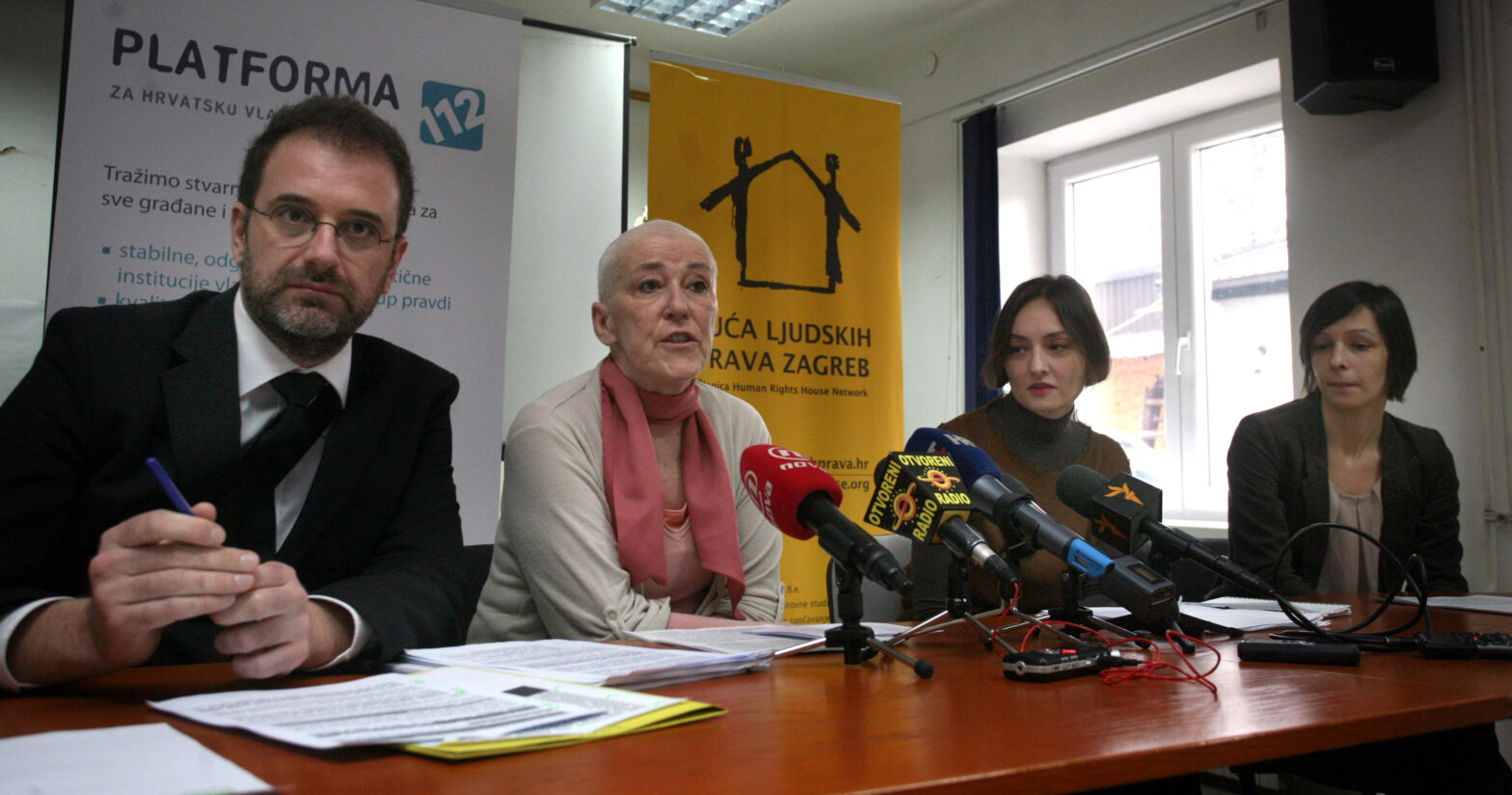At the presentation of the Civil Society Assessment Report of the Croatian Government Performance in view of 112 Requests (excerpt from the Report is available here) in the House of Human Rights on Wednesday, 6 March 2013, members of Platform 112 warned that the positive improvements to enhance the transparency and openness of the institutions are left in the shadow of the Achilles’ heels of the Government – the inconsistency of policy making and implementation.
Therefore, Platform 112 invites and requests from the authorities on the level of the Croatian Government and Parliament to make a turn towards democracy, rule of law and sustainable development, and to urgently, before entering the EU, do the following:
1. To correct the biggest injustices arising from the war and the transition:
– To urgently reverse the negative trend in return of the Serbian refugees, and especially to eliminate the backlog in resolving housing issues and issues of national minority employment in the civil service;
– To finally resolve the problem of tenant rights, which threatens the existence of thousands of families, and brings Croatia into a situation of violating the provisions of international treaties, which negatively effects the budget;
– To establish a system of compensating the civilian victims of war, including urgent elimination of the issue concerning the litigation charges;
– To change the Free Legal Aid Act by establishing clear criteria and effective procedures for providing free legal aid to a wide circle of users, who are in need of such aid;
– To ensure equity and efficiency of the war crime trials, especially in terms of regional cooperation and witness protection system.
2. To reject the existing approach of encouraging investment on a short-term basis by introducing a parallel system of shortcuts and incentives for privileged private investors, including a lack of through assessment of the expected long-term effects on administration, society, economy, natural and cultural goods.
3. To discuss publically and adopt new Croatian Sustainable Development Strategy as an umbrella policy that will ensure balanced development of local communities, regions and the society as a whole, responsible use of public resources, economy primarily based on knowledge and innovation, and where particular economic interests would be subordinate rather than superior to public and social interests, while strategic decisions would be made in a transparent and democratic manner.
4. To finally initiate the public administration reform in order to strengthen the management competencies and efficiency of the public sector, by introducing a new human resource policy, strategic management and territorial restructuring, where the aim would not be savings, but the quality of public policies and public services.
5. To ensure an efficient non-partisan supervision over the reforms arising from the accession negotiations in Chapter 23, which is in line with the critical issues of performance of the political system and public administration – prerequisites for success of any specific policy. A new parliamentary body – National Council for the Rule of Law and Protection of Public Interest – would also include the civil society and expert public representatives, in order to prevent partisan overruling, and it would cooperate with the EU institutions as well. In this way, Croatia would acquire expert knowledge and good reputation in future pan-European initiatives of parallel supervision over the quality of policies (benchmarking) in the area of the rule of law, such as the one referring to the policy of fight against corruption, which is currently proposed by Viviane Reding, EU commissioner for justice. We strongly believe that Croatia, as a new EU member state, with its direct experience of demanding transformations, should be the leader in deepening the rule of law, democracy and human rights issues in the EU and the entire Europe.
